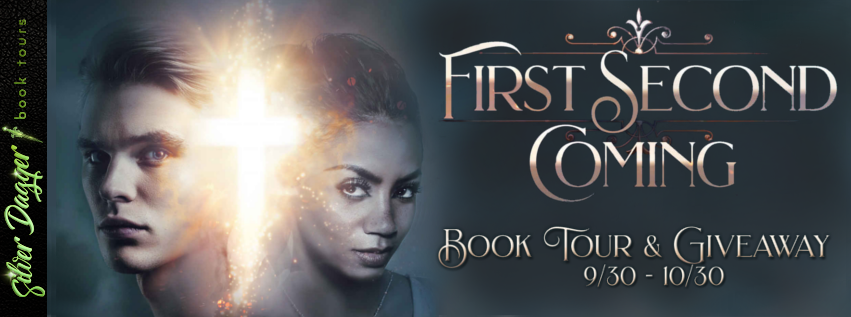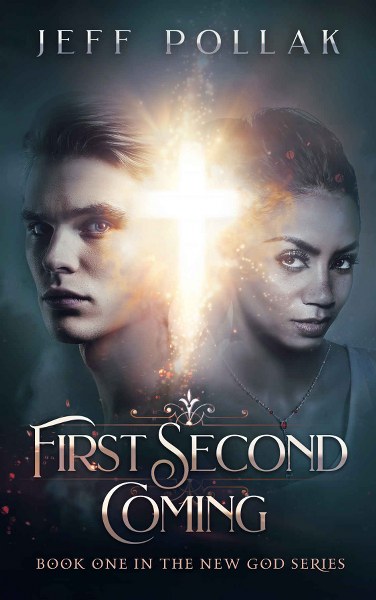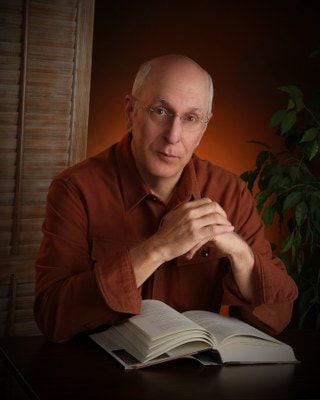What
drew you to write in the supernatural/romantic suspense genres?
Nothing.
When I first started writing First Second Coming, I thought it would be a
magical realism story. Somewhere around the third or fourth draft, I realized
it wasn’t MR, but didn’t know what genre it was. So I began to research genres
to see what fit. That led me to conclude the novel could be either urban
fantasy or romantic suspense, or both. That remained my conclusion through the
next five drafts. My publisher convinced me that instead of urban fantasy, the
book should be considered supernatural suspense. So I’ve inadvertently wandered
into two genres I had no idea I’d publish my first book in. The fantasy is
still there, by the way, we’re just not marketing it that way.
What
was the hardest thing about writing your supernatural/romantic suspense book?
Finding
the time to write while working full-time, sometimes much more than full-time,
as a trial lawyer working for myself. I started the book in 2014 and worked on
it evenings and weekends except when I was in trial or had family or other
commitments. When I retired in 2018, I was on my seventh draft and deemed the
book ready for a professional editor, so writing FSC took five years of
primarily part-timing the work to get the story finished.
How
much research do you do?
Plenty.
Regardless of the genre, I thought I was writing in, I wanted as much realism
in First Second Coming as I could get. This was especially challenging
regarding the religions that make appearances in the book since my familiarity
with most of them wasn’t enough. I bought and read books on them and on many
different perceptions of God, while writing.
I did a
lot of internet research on these subjects and even attended the World
Parliament of Religions in Toronto in 2017 to speak to as many religious
followers as I could find to get impressions of how my book would be received
or to discuss points of their religions that I needed to know about. Over the
course of the seven-day parliament, I must have spoken to five hundred people,
and I still found time to peruse the Hockey Hall of Fame.
The
professional editor I hired mentioned to me in her editorial report that I’d
convinced her I’m an expert in religions. That comment was very gratifying.
Do you
work to an outline or do you prefer to just see where an idea takes you?
A mix
of both. For FSC, I prepared an initial bullet-point outline. For each chapter,
I’d have two to four bullet points to remind me of the things that chapter had
to cover to advance the story. I free-styled the dialogue and narrative, at
least until my female MC, Brendali Santamaria, began to tell me what was really
happening in the chapter.
Once I
began to hear her telling me what the story actually was, I gave her a
semi-free will. I became more of a transcriber than a writer at that point,
taking down whatever Bren passed along to me. By the time I reached the end of
the first draft, I had a novel rather different, but better, than my outline.
What
would you say are the main advantages and disadvantages of self-publishing vs.
traditional publishing?
I think
the question derives from a false premise – that every writer has the same
desires regarding publication. Some people write as an avocation, not for
publishing. Others want to publish. Still others are somewhere between these
two poles. Business acumen or time constraints play a role, too, in that some
people don’t want to take on the burden of marketing in addition to writing, so
they want traditional publishing or nothing.
Age
also matters, in that the big traditional publishers take forever – well, up to
five years – to publish a book. The question also omits the fact that
traditional publishers include not only the big ones but small or regional
presses, hybrid publishers, and (don’t go here, anyone) vanity presses. With
all that said, my own perspectives on advantages and disadvantages have very
little value, since they are unique to me and not a generalization. Each writer
contemplating publishing should research the many options that exist these
days, determine which one(s) fit them best, and then go in that direction.
Great
advice! Do you have a good or bad story regarding publishing?
Here’s
my good one. The writer’s conference I attend yearly – Southern California
Writers Conference, which I highly recommend to anyone – has a feature called
the Advanced Submissions, which is a fee-based thing. You pay $50 for a
fifteen-minute get-together with your chosen agent, editor, fellow writer, or
publisher.
The
chosen individual gets the first ten pages of your story in advance of the
conference, marks it up, and gives you feedback. If you’ve selected an agent
and you’re very lucky, you might get a request for the full manuscript if there
is one, or a request that you send it to him or her when the MS is ready.
In my
case, I requested one agent in 2018 who I never got to meet because her flight
was grounded by bad weather. In 2019 I paid for two conferences, one with an
agent, the other with a publisher. The agent lost her father and didn’t show
up, but she contacted me to ask for the full manuscript. I did meet the
co-founder of a publisher I’d been angling toward over the prior months, who
told me she wanted to publish the story based on what she’d read and what I’d done
to get to know her company.
So,
after about six months of querying, I had a publishing offer and my first
agent’s request for a full manuscript, just like that. It took me two months to
decide which way to go, but I took the publication offer and I’m very happy I
did.
What do
you think of “trailers” for books, and will you create one for your work?
I’ve
seen some very impressive trailers for books, but haven’t investigated the
cost. I also haven’t seen anything quantifiable that can assure me that a trailer
is worth the cost. So I’m very on the fence on this one. I’m doing something
slightly different because I’m fortunate to have a niece who is a professional
animator. She’s going to prepare a brief animation for my author’s page that
will (hopefully) be ready by First Second Coming’s publication date, August
1st. It’s not a trailer so much as a treat for those of my future readers who
enjoy animation.
What a
great idea! So, what do your fans mean to you?
As this
is my first book I don’t yet have any fans. When I do they’ll be treated like
the clients I worked for. By contract and law I was required to do my absolute
best from start to finish – a zealous advocate. Converting that to publishing
means, to me, that I must write the best story I can, recognize that the reader
has chosen to devote a certain amount of time to my characters and story, show
my appreciation for that and make the reader happy he or she spent that time
with my tale rather than with the story in the next office (or shelf).
I like
how you think. If you could have dinner with three people, living or dead, who
would they be and why?
Although
I would love to have dinner with my three favorite deceased authors – James
Clavell, Frank Herbert, and Tom Clancy – I chose living ones so that the ghosts
of those authors of yesteryear aren’t jealous of the meal I assume they can no
longer eat.
The
living authors I would select are Daniel Silva for his ability to integrate
current events into his page-turner suspense stories, as I am doing in mine;
David Mitchell for his stunningly brilliant writing and the equally off the
charts plots and characters, and Iain Pears for the depth and details he builds
into his novels and his ability to write in multiple genres. I’d invite Neil
Gaiman and Haruki Murakami to the dinner, too, but the table only accommodates
four people.
If
you could only eat one food for the rest of your life, what would it be?
I’d
pick pizza. Aside from the nutrition I’d gain from the basic ingredients
(cheese, starch, sauce), there’s a great deal of variety in the items that can
be added. So I could have a Hawaiian pizza – my favorite style – one day; a
classic pepperoni pie the next; a barbeque pizza after that, etc. I thrive on
variation so this choice would give me a different meal for every lunch and
dinner every day for a month. I’d skip breakfast to keep the calories down.
Jeff
Pollak, the author of First Second Coming and sequels to come, was
raised in the Riverdale section of the Bronx by a single mom and two
grandparents who lived eight floors up. After graduating from college
in Buffalo, Jeff headed west to Los Angeles for law school and spent
his entire legal career in and around civil litigation. Now retired,
writing fiction is Jeff's new passion.
$25 Starbucks Gift Card,
choice of Paperback or ebook of First Second Coming
– 1 winner each!







No comments:
Post a Comment